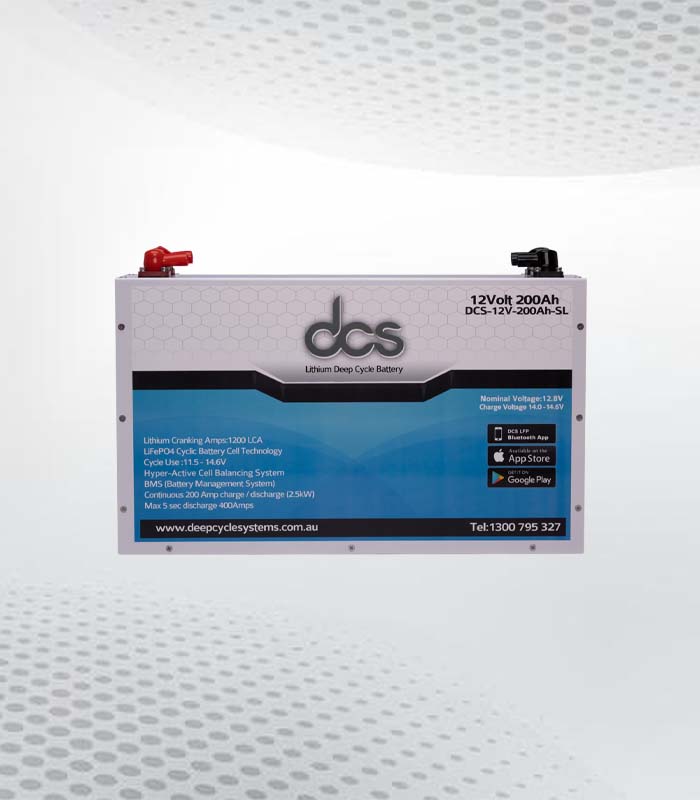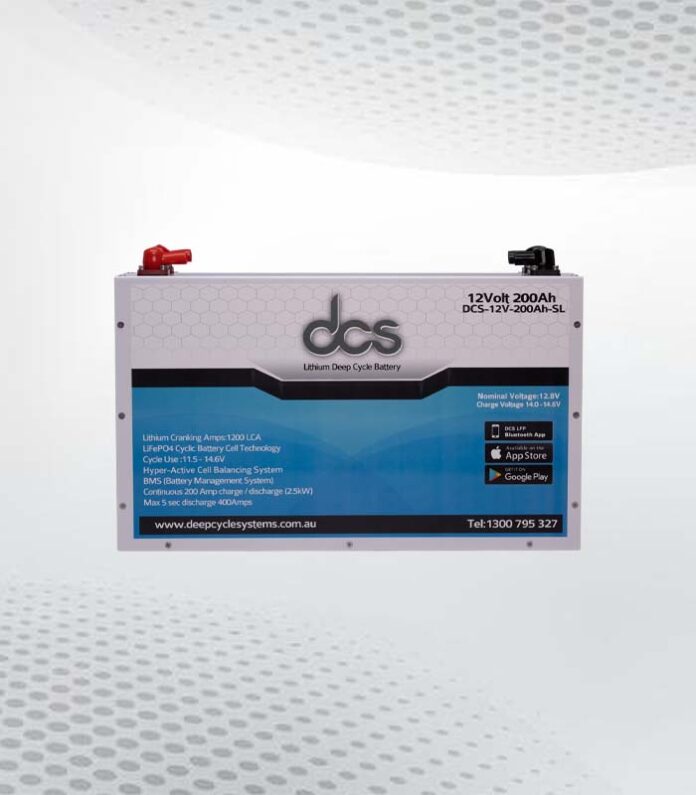Are you tired of constantly replacing your boat’s battery or dealing with its short lifespan? It may be time to consider upgrading to a lithium marine battery. While traditional lead-acid batteries have been the go-to choice for many boaters, lithium batteries offer numerous advantages that make them a superior option. From longer lifespan and faster charging to lighter weight and improved performance, there are many reasons why your boat would benefit from a lithium battery. Understanding Lithium Marine Batteries: A Basic Overview
Lithium marine batteries are a revolutionary power source that is rapidly gaining popularity among boaters. These batteries are made using advanced lithium-ion technology, which offers numerous advantages over traditional lead-acid batteries.
Unlike lead-acid batteries, lithium marine batteries have a higher energy density, meaning they can store more energy in a smaller and lighter package. This not only makes them more compact and space-efficient but also significantly reduces the overall weight of your boat. Lighter weight translates to increased speed and improved fuel efficiency, allowing you to sail farther and longer without worrying about refueling.
Furthermore, lithium marine batteries have faster charging capabilities compared to their lead-acid counterparts. They can charge at a much quicker rate, allowing you to get back on the water sooner. Additionally, these batteries have a low self-discharge rate, meaning they can retain their charge for extended periods of time, even when not in use.
Key Advantages of Using Lithium Marine Batteries for Your Boat
When it comes to choosing a battery for your boat, the advantages of using a lithium battery are hard to ignore. These innovative power sources offer a range of benefits that make them the superior choice for any boating enthusiast.
One of the key advantages of a lithium battery is its longer lifespan. While traditional lead-acid batteries typically last for just a few years, lithium batteries can endure up to ten times longer. This means fewer replacements and more money saved in the long run.
Another major advantage is the faster charging capabilities of lithium marine batteries. With the ability to charge at a much quicker rate, you can spend less time waiting and more time out on the water enjoying your boat.
In addition to their longevity and fast-charging capabilities, lithium marine batteries also offer a significant weight reduction. This lighter weight not only enhances your boat’s overall performance, but it also improves fuel efficiency, allowing you to sail farther and longer without worrying about refueling.
Furthermore, lithium marine batteries have a low self-discharge rate, meaning they can retain their charge for extended periods of time, even when not in use. This is particularly beneficial for boat owners who may not use their boats year-round or have long periods of time between trips.
Making the Switch: Upgrading to a Lithium Trolling Battery
Upgrading to a lithium trolling battery is a smart decision that can greatly enhance your boating experience. Making the switch from traditional lead-acid batteries to lithium batteries offers a range of benefits that are hard to ignore.
To upgrade to a lithium battery, start by assessing your boat’s power needs. Consider factors such as the size of your boat, the number of onboard electronics, and the duration of your trips. This will help you determine the right size and capacity of lithium battery to suit your needs.
Next, consult with a reputable marine battery supplier or professional to ensure that you select the best lithium battery for your boat. They can provide valuable guidance on the different brands and models available, as well as the installation process.
Once you have chosen your new lithium battery, the installation process is relatively straightforward. Simply replace your old lead-acid battery with the lithium battery, following the manufacturer’s instructions. It’s important to note that lithium batteries require a different charging system, so you may need to upgrade your onboard charger as well.
Finally, once your lithium battery is installed, take some time to familiarize yourself with its unique features and capabilities. Enjoy the longer lifespan, faster charging, lighter weight, and improved performance that lithium batteries bring to your boating adventures.
How to Maximize the Lifespan and Performance of Your Lithium Battery
To ensure that your lithium battery performs optimally and lasts as long as possible, there are a few key steps you can take to maximize its lifespan and performance.
First and foremost, it’s crucial to follow the manufacturer’s instructions for charging and maintenance. Overcharging or undercharging can both negatively impact the lifespan and performance of your battery. Make sure to use a charger specifically designed for lithium batteries and avoid leaving your battery in a fully discharged state for extended periods of time.
Regularly monitoring the battery’s state of charge is also essential. Invest in a battery monitoring system or use a multimeter to keep track of the voltage and state of charge. This will help you determine when it’s time to recharge and prevent over-discharging, which can shorten the battery’s lifespan.
Another way to maximize the lifespan of your lithium battery is by avoiding extreme temperatures. Lithium batteries perform best within a specific temperature range, typically between 32°F and 104°F (0°C and 40°C). Exposing your battery to temperatures outside of this range can degrade its performance and reduce its overall lifespan.
Efficient and Eco-Friendly: Lithium Marine Batteries and the Environment
Lithium marine batteries not only offer superior performance and efficiency for your boat, but they are also an eco-friendly choice that benefits the environment. Unlike traditional lead-acid batteries, lithium batteries do not contain harmful chemicals such as sulfuric acid, making them safer to use and easier to dispose of responsibly.
By choosing a lithium battery, you are reducing your carbon footprint and contributing to a cleaner and healthier marine environment. These batteries have a significantly lower impact on the environment throughout their lifecycle, from production to disposal. They require less energy to manufacture and have a smaller carbon footprint compared to lead-acid batteries.
Additionally, lithium batteries have a higher energy efficiency, which means they can store and utilize more energy with less waste. This not only reduces the amount of energy needed to power your boat, but it also helps to conserve resources and reduce greenhouse gas emissions.
Furthermore, lithium marine batteries are recyclable, and their components can be reused to create new batteries or other products. This reduces the need for raw materials extraction and minimizes the amount of waste that ends up in landfills or polluting our waterways.
Boosting Performance on the Water: Lithium Battery’s Extra Benefits
When it comes to boating, performance is key. You want to maximize your time on the water and get the most out of your boat. That’s where a lithium battery comes in, offering a range of extra benefits that can boost your boat’s performance and enhance your overall experience.
One of the key benefits of a lithium battery is its ability to provide consistent and reliable power. Unlike traditional lead-acid batteries that can experience voltage drops and decreased performance over time, lithium batteries maintain a stable voltage output throughout their charge. This means that your boat’s electronics, lights, and other electrical systems will operate at their full potential, ensuring a smooth and efficient boating experience.
In addition, lithium marine batteries offer faster discharge rates, allowing you to power high-demand equipment without worrying about a decrease in performance. Whether you’re running multiple electronics, using a trolling motor, or enjoying other power-intensive activities, a lithium battery can handle the load and provide consistent power throughout your trip.
Furthermore, lithium marine batteries have a higher energy density, meaning they can provide more power in a smaller and lighter package. This allows for more flexibility in boat design, as you can save space and reduce weight without compromising on performance.
 FAQ’S
FAQ’S
Have some burning questions about lithium marine batteries? Don’t worry, we’ve got you covered! Here are some frequently asked questions to help clear up any confusion:
Are lithium marine batteries safe to use on my boat?
Absolutely! Lithium marine batteries are designed to be safe and reliable. They have built-in safety features such as overcharge protection and thermal sensors to prevent any issues.
How do I know what size lithium battery I need for my boat?
The size of the lithium battery you need will depend on factors such as the size of your boat, the number of onboard electronics, and the duration of your trips. It’s best to consult with a reputable marine battery supplier or professional to determine the right size and capacity for your specific needs.
Can I use my existing onboard charger with a lithium marine battery?
In most cases, you will need to upgrade your onboard charger to a lithium-compatible charger. Lithium batteries require a different charging profile than lead-acid batteries, so it’s important to ensure you have the correct charging system to avoid any damage to your battery.
Conclusion
In conclusion, upgrading to a lithium battery is a game-changer for boat owners. The numerous advantages it offers make it the superior choice over traditional lead-acid batteries. With a longer lifespan, faster charging capabilities, lighter weight, and improved performance, lithium battery can greatly enhance your boating experience.

